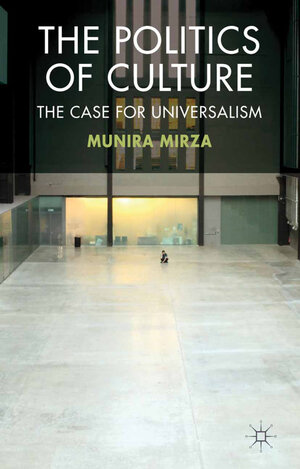
'Munira Mirza has produced a challenging and indeed urgent thesis concerning the politics of culture and cultural policy today.' - Jim McGuigan, Loughborough University, UK
'Munira Mirza helps us to think again about the complex relations between the universal value of supporting culture and the challenges of responding to local and minority communities. Her trenchant and insightful analysis will point cultural producers and policy makers alike in new and fruitful directions.' - Iwona Blazwick OBE, Director ofWhitechapel Gallery, UK
'In this invigorating analysis, Munira Mirza tackles head-on the problematic issues of 'cultural diversity' and calls for a new, critical universalism in contemporary cultural policy. Informed by both scholarly enquiry and a deep engagement with organisational practice, Mirza's book exposes the contradictions that arise when identity politics drive the arts. With insights grounded in revealing case-studies, Mirza navigates these difficultwaters with considerable skill. Theoretically well-informed, but free from academic jargon, the book will be of interest to students, academics and arts professionals alike. Provocative, challenging, sometimes contrarian, it is a welcome addition to the growing literature on 'cultural value'.' - Oliver Bennett, University of Warwick, UK
'This is an important book, which should be required reading for those who think they know it all already... the thesis is convincing and its effect is that of an invigorating, strong, and unsweetened double espresso in a context of far too much diluted, dishonest and compromised froth. Read it!' - Arts Professional
"I am struck by its clarity of language and argument. Mirza is unapologetic about using the term 'universal' to mean not we are 'all the same' but that we have the imagination to transcend, through art and culture, our particular biological, historical, geographical or ethnic circumstances. She makes a strong case that 'inclusive' approaches by the guardians of cultural institutions obscure the universal and, therefore, what it is to be human." - Professor Dennis Hayes, Times Higher Education
'Where Mirza is at her best is in her unsparing dissection of the ambiguities, contradictions and occasional hypocrisy of identity politics and cultural instrumentalism...' -Museum Journal



